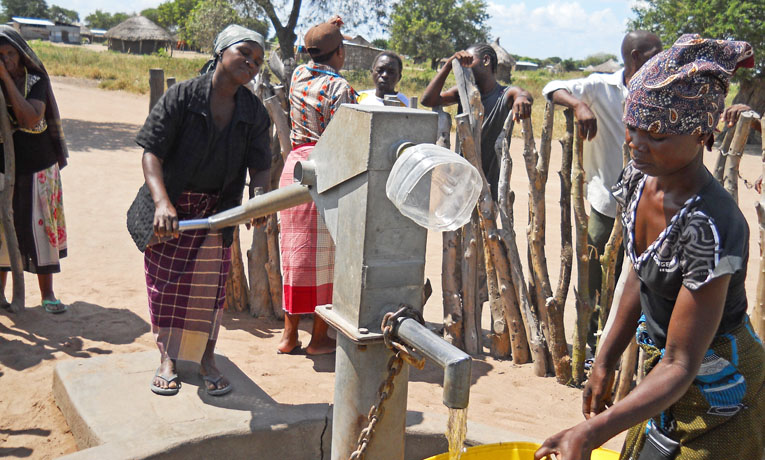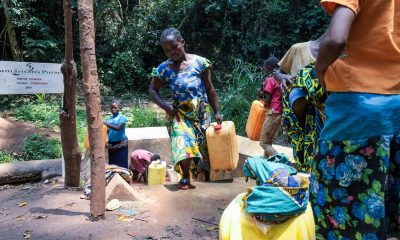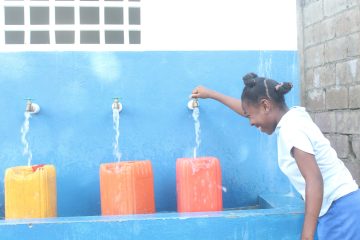A well rehabilitation and hygiene project improves health in a rural community in Mozambique while giving women worth and dignity
By Samaritan’s Purse Mozambique staff
Elizabeth Candrinho took note of the dramatic improvements in the health of the people of Joaquim after Samaritan’s Purse rehabilitated the well in the rural community in Mozambique.
Before, the people of Joaquim had no other option but to retrieve water from a nearby river. Waterborne diseases were rife. They markedly decreased after the source of clean water was in place.
Elizabeth is a 43-year-old widow and mother of five. When Samaritan’s Purse staff members began talking about other sanitation and hygiene practices that could improve the health of her children and community, she was very interested.
We returned to the village to provide hygiene, sanitation, and pump maintenance training. Elizabeth joined the water committee, and enthusiastically took part. She quickly mastered the content and showed her leadership potential and vision.
“With the arrival of this training we are going to change our way of living and our attitudes about hygiene and sanitation,” she said. “We are going to dig pit latrines to get rid of using the bush as our toilets so that we can cut the transmission route of diseases. We will implement hygiene practices and cover or protect drinking water in our homes, washing hands always for the betterment of our health. To help protect our community we will share the message of good practices of hygiene and sanitation which we have learned from the Samaritan’s Purse team.”
Elizabeth not only promotes good health practices in her village, but she also uses her training in practical ways. The village was having problems with the pump recently. Elizabeth investigated and found a mechanical problem. She used money from the community’s monthly contributions to the water committee to purchase a replacement part and made repairs.
Elizabeth has promised that Joaquim will never suffer from a shortage of water due to a breakdown of the pump because she and other members of the water committee are able to make repairs as a result of the training that they have received from Samaritan’s Purse.
The actions of women like Elizabeth greatly contribute to the goal of sustainable management of potable water sources within rural communities. But more than that, it gives them a sense of worth and dignity. The message that they are special in the eyes of God is reinforced.






